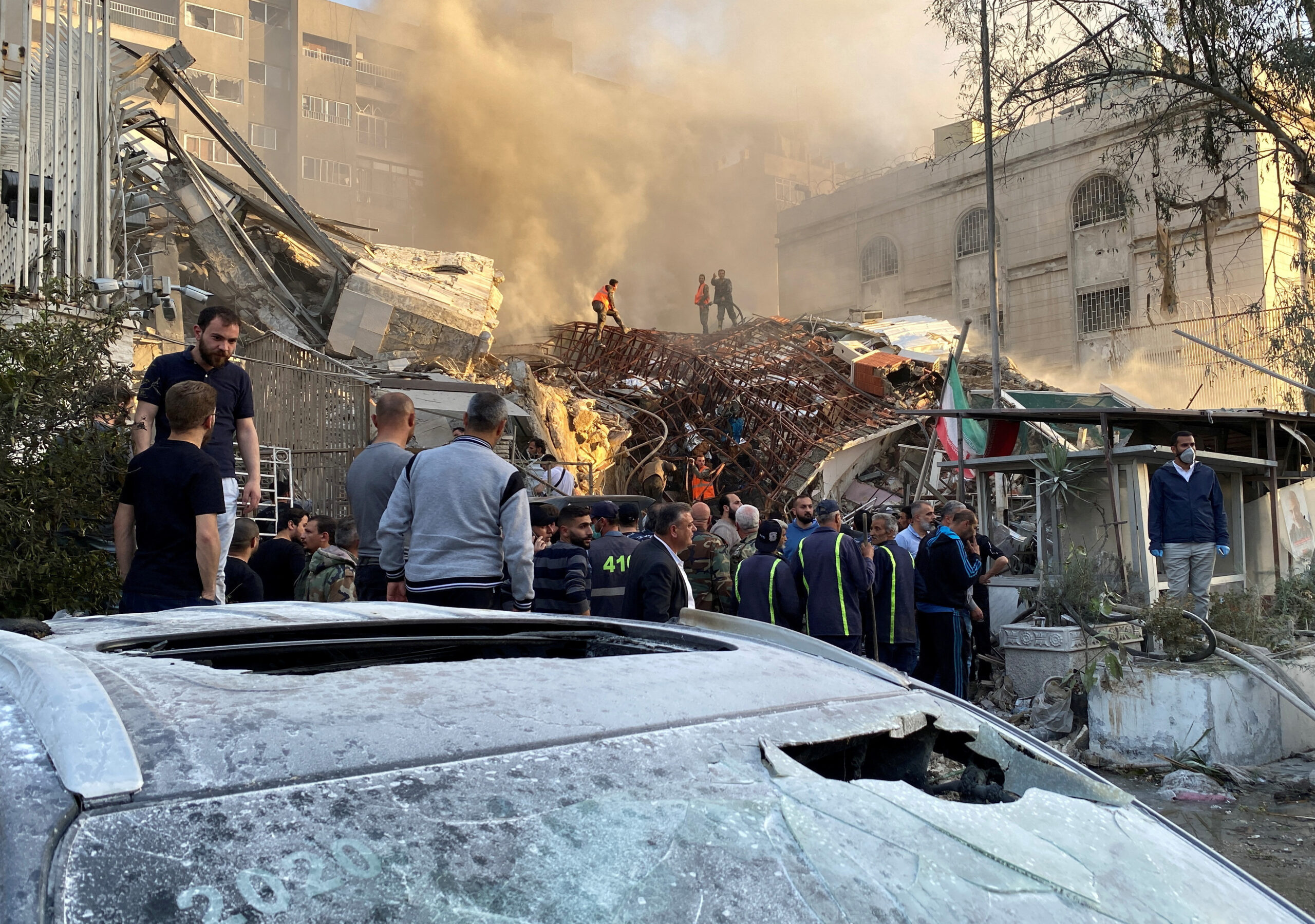- Israel confirmed airstrikes targeting military facilities in Iran, reportedly avoiding nuclear and oil sites. Nytimes.com
- Iran’s military reported “limited damage” in the provinces of Tehran, Ilam, and Khuzestan; officials confirmed the death of two soldiers. Bbc.com
- U.S. officials supported Israel’s actions, calling them a “self-defense measure,” while urging restraint to avoid further escalation. Theguardian.com
- In Tehran, daily life mostly resumed despite anxieties; some residents noted rising prices and currency fluctuations amid fears of a broader conflict. Aljazeera.com
- Iran’s Foreign Ministry stated that Iran “reserves the right to respond,” yet downplayed the attack’s impact to signal de-escalation. Cnn.com
From Israel's viewpoint, the airstrikes were a calculated and necessary response to Iran's continued ballistic missile attacks on Israeli territory. Israeli officials framed the strikes as a precise targeting of military facilities intended to neutralize immediate threats, while avoiding sites that could lead to a regional escalation, such as nuclear facilities. Israel asserts its right to defend itself against the continuous threats posed by Iran and its proxies, describing this military operation as a limited, proportionate act in self-defense rather than an offensive escalation.
Iran views the Israeli strikes as an unprovoked act of aggression, emphasizing that the attack violates its sovereignty and disregards international law. Iranian authorities highlighted that the attacks resulted in only minor damage, attempting to project resilience and control to both their domestic and international audiences. Iran's government has expressed its 'right and obligation' to defend itself against such aggression, and it has hinted at a potential response to any further Israeli escalations while maintaining its stance as a regional stabilizer against what it sees as foreign interventionism.
The United States, while supporting Israel's right to defend itself, has actively encouraged restraint to avoid a deeper regional conflict. U.S. officials emphasized that the strikes should be 'proportionate' and focused exclusively on military targets to minimize civilian risk. The U.S. has urged both Iran and Israel to avoid further actions that could trigger a wider war, especially in light of other ongoing conflicts in Gaza and Lebanon. With regional stability at stake, Washington's position is that controlled actions are crucial to prevent a larger crisis, which would be detrimental to all parties involved.
Details
Security
Bias
Deltas
In the early hours of October 26, 2024, Israel launched airstrikes on military targets within Iran, marking a significant escalation in the ongoing tensions between the two countries. The strikes, according to Israeli military officials, were aimed at neutralizing immediate threats and primarily targeted missile production and air defense sites, reportedly avoiding critical infrastructure like nuclear facilities and oil production sites. Israel described the action as a necessary self-defense measure in response to Iran's ballistic missile attacks on October 1, which had targeted Israeli territories in retaliation for a series of assassinations of Iranian and Hezbollah leaders over recent months. These airstrikes are being considered a departure from Israel and Iran's usual indirect hostilities, often executed through proxies rather than direct military confrontations Cnn.com Nytimes.com Theguardian.com.
Iran's response was swift but measured, with government sources indicating the strikes caused "limited damage" to military sites in Tehran and the provinces of Ilam and Khuzestan, while downplaying the incident as a whole. Iranian authorities claimed that the country’s air defenses had effectively intercepted many of the attacks, reducing the impact on their military capabilities. However, Iran did confirm the death of at least two soldiers as a result of the strikes. Following the attack, the Iranian Foreign Ministry asserted that the country “reserves the right” to defend itself against what it perceives as foreign aggression. In Tehran, daily life resumed normally after a brief period of heightened tension, with markets and other public spaces operating as usual. Despite this display of resilience, many Tehran residents voiced concerns over the potential for escalating conflict, which would place additional pressure on the already struggling Iranian economy Aljazeera.com Nytimes.com.
The United States, while supporting Israel’s right to defend itself, has been actively encouraging both sides to practice restraint to prevent further regional instability. U.S. officials, including President Joe Biden, advised Israel to avoid targeting sensitive sites that could lead to a broader conflict. The Biden administration reportedly conveyed its concerns to Israel in advance of the airstrikes, urging them to focus strictly on military facilities to mitigate civilian harm. In the wake of the strikes, the U.S. National Security Council issued statements affirming Israel’s right to self-defense, yet emphasized the need to avoid escalation that could destabilize the Middle East further. Regional allies, including Jordan and Saudi Arabia, expressed apprehension about the potential for these strikes to inflame the situation across neighboring regions Theguardian.com Bbc.com.
The recent escalation highlights a shift in the long-standing “shadow war” between Israel and Iran, which for years involved covert operations, cyberattacks, and support of proxy forces instead of direct confrontations. Israeli leaders, including opposition figures, expressed a range of views regarding the extent of the retaliatory actions, with some officials suggesting that a harsher response could have been justified. Israeli military leaders asserted that their actions were designed to prevent further threats from Iranian forces without aiming to provoke a larger conflict. However, within Israel, there remains considerable debate over the broader strategic implications of such direct strikes within Iranian territory, and the pressure is mounting on Israeli leaders to continue these defensive measures if further attacks from Iran or its allies arise Timesofisrael.com Nytimes.com.
As the geopolitical landscape remains tense, regional analysts and international observers are closely monitoring Iran’s next moves. Although the country has yet to retaliate, Iranian state media and public statements indicate that Tehran is keeping its response options open while managing both domestic and foreign expectations. The Iranian government faces a complex decision in balancing national pride, economic considerations, and its regional alliances in Gaza, Lebanon, and other areas where its proxies are actively engaged. While some Iranian leaders have downplayed the impact of Israel’s strikes, voices within Iran, particularly from hardliners, are pressing for a more forceful response. For now, however, the situation remains a calculated and contained escalation, with all parties—particularly the United States—advocating for de-escalation to prevent further conflict Theguardian.com Bbc.com.
The article discusses the potential for increased U.S. presence in the region, subtly criticizing Israel's actions as overly provocative. By emphasizing risks and downplaying possible security motivations, it conveys a skeptical view of Israel’s actions.
Read full article
The article reports Iranian claims of Israeli aggression and emphasizes the destructive impact, fostering a narrative of Israel as the aggressor without discussing possible Israeli motives.
Read full article
The article emphasizes Iran's justification of self-defense under international law and portrays Israel as a destabilizing force, suggesting that further escalation is due to Israeli provocations.
Read full article

By portraying Israel as the aggressor and framing Iran as seeking defensive support from the international community, the article subtly aligns with a critical view of Israel’s actions.
Read full article
Negative
Sentiment
The article reports Israeli strikes in Tehran and includes direct quotes from the IDF on targeting military sites. By avoiding inflammatory language and not editorializing the events, the piece takes a neutral approach.
Read full article
The article highlights Israel's actions on military targets and the response from Iranian defenses, avoiding emotive language or bias in describing either side’s motivations.
Read full article

The article discusses claims from both sides, focusing on factual descriptions of military actions without assigning blame or supporting one side.
Read full article

The article neutrally presents statements from both countries, focusing on the factual account of events and avoiding language that supports one side.
Read full article
Neutral
Sentiment
Positive
Sentiment
-
+
URA [Russia] Adds Notification of Strikes to the U.S.
URA reports that Israel informed the White House of its plans to attack Iran before launching airstrikes.
This preemptive notification was not noted in Western reports, providing additional context on U.S.-Israel communication. -
+
Kommersant [Russia] Adds American Concerns of Potential Escalation
Kommersant mentions American military concerns regarding Iran's possible retaliation, indicating U.S. fears of a wider conflict.
This was not prominently highlighted in Western sources, adding a layer of strategic U.S. regional involvement. -
+
Al Jazeera [Middle East] Adds Statement from Iranian General Staff
Al Jazeera includes threats by Iranian General Staff to destroy Israeli infrastructure if Israel escalates further.
This explicit threat and Iran’s statement on targeting regional allies was less emphasized in Western reports. -
+
China Youth Daily [China] Adds Israeli Prime Minister Observing Operation
China Youth Daily reports Israeli PM Netanyahu observing the attack on Iran from a bunker, emphasizing the Israeli government’s high involvement.
This detail on Netanyahu's direct oversight was absent in Western sources. -
+
Federal Press [Russia] Adds Civil Aviation Impact
Federal Press includes details of flight cancellations in Iran as a direct result of the strikes, impacting national civil aviation.
This disruption to flights was not highlighted in many Western articles.
-
-
CNN [USA] Omits Iranian Defense Capabilities
CNN omits mention of Iran’s use of advanced air defenses and interception capabilities in the attack.
Russian and Middle Eastern reports discuss Iran’s defensive response, while CNN focuses mainly on Israel’s initial strike. -
-
BBC [UK] Omits Context on Iranian Regional Strategy
BBC omits Iranian statements on targeting countries aligned with Israel if provoked further.
This broader geopolitical threat was covered more extensively in Middle Eastern media. -
-
RT [Russia] Omits Role of Israeli-U.S. Coordination
RT omits discussion of U.S.-Israeli military coordination and the strategic implications for American forces in the region.
Western sources highlighted American involvement, particularly with regard to air defense, which is not discussed in RT’s coverage. -
-
Baidu [China] Omits Iranian Warnings to Regional Allies
Baidu’s report does not mention Iran's threats to Israel-aligned countries in case of intervention.
Al Jazeera and Russian sources include Iran’s threats of broader retaliation, whereas Baidu limits its focus to immediate actions.


